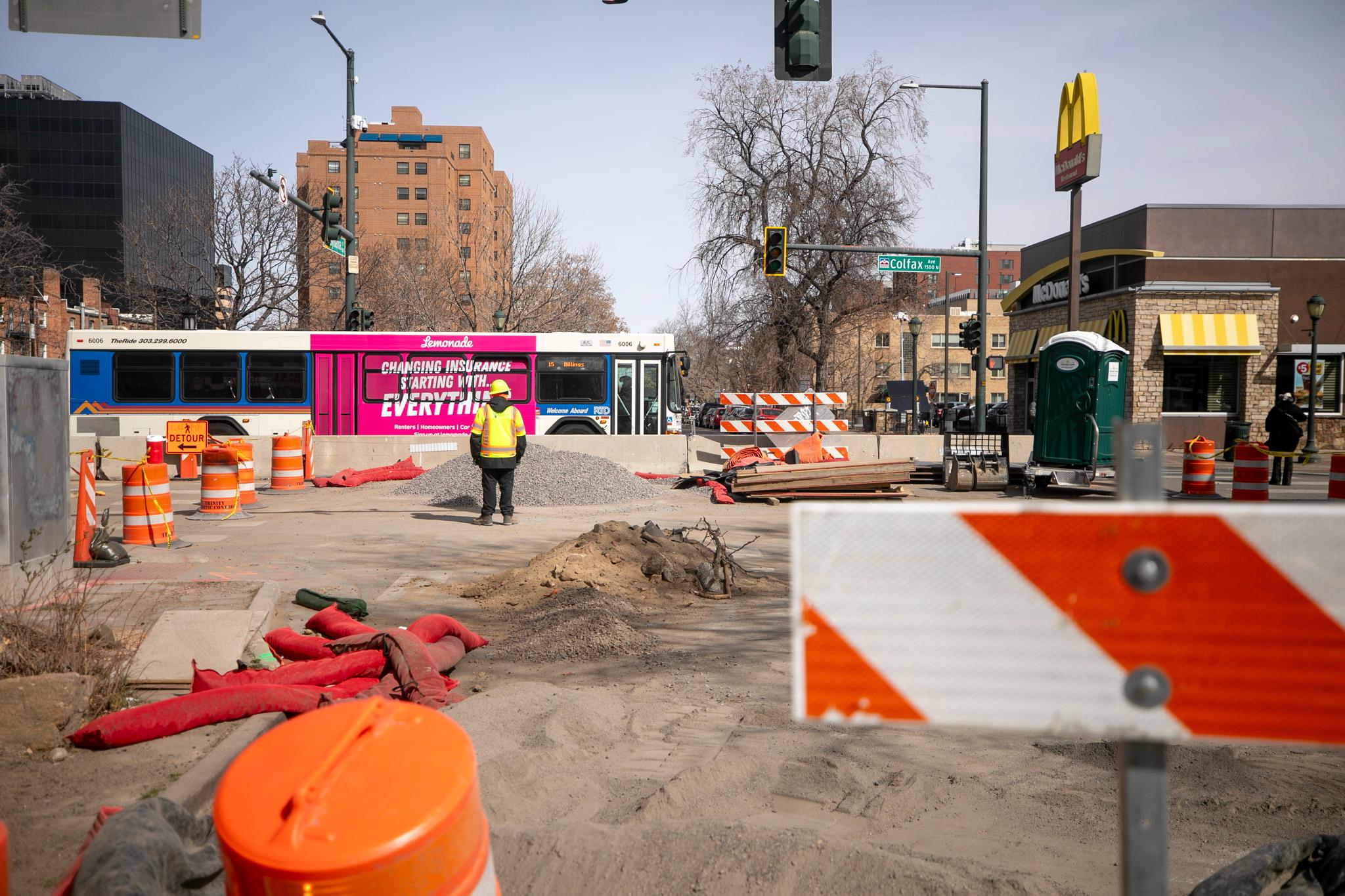The Regional Transportation District (RTD) Board of Directors voted Tuesday to raise general manager Debra Johnson's salary and approve new performance metrics for 2024.
Since starting the job in 2020, Johnson's base salary has grown from $315,000 to $402,325, not including the potential for bonuses and other benefits. The most recent raise amounted to a 1.8% boost.
The board also approved performance metrics and goals for Johnson in 2024, which will determine a potential performance-based salary bump in 2025. Board members in favor of the metrics say it will provide more flexibility and support a data-driven approach to performance.
But some transit activists and board members say those metrics, drafted by Johnson, are too disconnected from RTD performance and the goals are too low-level for a general manager.
The short-term 2024 goals include beginning a light rail replacement plan, completing rail reconstruction projects at five intersections in Denver, and reducing voluntary employee turnover by 3%. Another goal is to "vigorously pursue the passage of legislation ... regarding enhanced penalties for assaults on transit workers," according to a presentation to the board on the goals.
"What's pivotal here and what's being presented is that there were discussions that ensued relative to what is my core job, because these goals are for naught if in fact I am not doing what you will hired me to do on a day to day basis," Johnson said.
Director Erik Davidson said the changes are an improvement from recent years.
"This is an important move towards a data-driven approach, which is a start, not a finish," he said Tuesday.
But others wanted to see the goals, which did not mention RTD's buses, tied more closely to RTD performance.
"Not with poor intention, I think we have removed the customer and service delivery from this framework," said director JoyAnn Ruscha, who voted no on an amendment to Johnson's contract. "As a person whose family lived and died by the bus for many years, I just wasn't comfortable with that."
Richard Bamber, a transit advocate with Greater Denver Transit, said he thinks the rail projects are too narrow for a CEO who should be overseeing the entire agency's projects. He said staffing metrics should be based on turnover and retention as a whole, rather than solely on voluntary turnover, given how big of an issue staffing has been at RTD in recent years. Instead, he wants performance metrics based on service quality and reliability.
"This is the tail wagging the dog," he said. "A CEO who can genuinely turn RTD around and solve the agency's major problems would be worth every single cent ... The issue is, looking at this, she just hasn't really been incentivized to do it."
It's not the first time RTD's pay and performance structure for leadership has come under scrutiny. A 2010 state audit found issues with the way RTD set CEO compensation, including how it compared with salaries across the market, leading to an above-market base salary for a past general manager. The audit also found equity disparities between the general manager's salary and benefits in comparison with other salaried employees at RTD.
The board also approved new rules restricting the length of board meetings to four hours.
The measure passed, with three no votes from Directors Ruscha, Michael Guzman and Ian Harwick. Board members supporting the measure said it would keep meetings from going late into the night while staff and directors have other full-time jobs.
One public comment session in the summer of 2023 stretched on when the board was considering controversial changes to its code of conduct.
"This provides some structure so that we all understand what our system is going to be," said director Marjorie Sloan. "We want to get things right. We don't want to just keep forging ahead and not making a good decision."
Shortening meetings and public comment is a move other governing bodies in the city have made in recent years. In September the Denver School Board put a two-hour time limit on public comment.
Board members in opposition to the change said existing rules allow the board to adjourn a meeting when needed, and that putting a time limit on meetings would be a disservice to the public.
"We do need to hear the people and do the people's work. That's why we're here," Guzman said. "I cannot vote in favor of this bylaw amendment, because it does limit our ability to do the work that we were elected to do here."











